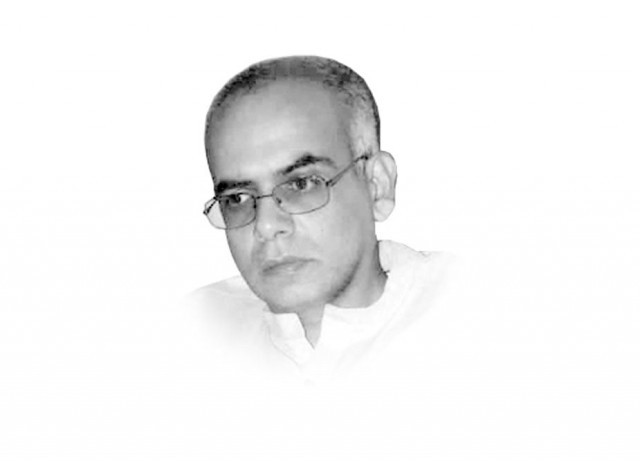Muslims in US politics
The midterm elections as an evident shift in Muslim representation and participation in the US

The writer is a development anthropologist. He can be reached at ali@policy.hu
It was only a decade or so ago when the first two Black Americans made history by becoming the first Muslim congressmen. There were also two Muslim congressmen elected to serve a two-year term back in 2016. One of these congressmen has been able to retain his seat during the current midterms while the other has become an attorney general for the state of Minnesota. The mid-term elections have also enabled a Somali-American woman and a Palestinian-American woman to be elected to Congress.
The number of Muslims in the US Congress has now risen to three. Moreover, many other Muslims have also won a range of seats ranging from the federal to the local level of government. The Council on American Islamic Relations has noted a record number of 55 Muslims to have won some form of office.
The increasing presence of Muslims in American politics is an intriguing development given that American Muslims have traditionally not been politically active. Despite their sizeable population of 3.3 million people, only 44 per cent of American Muslims voted in the 2016 election, which is well below the national turnout of 58 per cent of registered voters.
However, this political apathy of Muslims seems to be dispelling at last, instigated perhaps by the divisive political climate prevailing within the country. While Islamophobia has been on a rise across the Western world since 9/11, the situation within the US has gotten much worse under the current administration. The Institute for Social Policy and Understanding research indicates that 60 per cent of American Muslims report experiencing religious discrimination. Over 40 per cent of Muslim families with children in school said their child was bullied.
Analysts note how the Muslim identity in the US is evolving and shifting in important ways. In the past, Muslims from diverse backgrounds have tended to largely align with the Republicans. Pakistani-Americans, for instance, have been Regan and Bush supporters, thinking of these leaders as better friends of their home country than Carter, Clinton or Obama. By the 2016 election, however, this situation had radically changed. According to a Pew poll, only eight per cent of American-Muslim voters said they cast their vote for Trump. During the 2018 midterms as well, nearly 80 per cent of the Muslim voters supported Democratic Party candidates.
While still religious, American Muslims today are younger and more liberal than ever before. These younger American Muslims are not only becoming politically active but also more left leaning. Other research suggests that many Muslims had, in fact, preferred the failed Democratic primary challenger, Bernie Sanders, to Hillary Clinton, even though they had to vote for Clinton when Sanders could not secure the presidential nomination.
Becoming more progressive has enabled American Muslims to help elect more Muslims into different tiers of government, and it is encouraging them to begin forming new alliances with other civil rights groups, such as Black Lives Matter. These are encouraging developments which help American Muslims become more integrated and aligned with longstanding civil rights movements within the country.
Increased political participation and civic engagement is vital for Muslim diasporic communities to feel less isolated and weave into the mosaic of American society better. Doing so may also bring the added benefit of enabling American Muslims to influence the adoption of more nuanced American policies towards their countries of origin as well.
Published in The Express Tribune, November 23rd, 2018.
Like Opinion & Editorial on Facebook, follow @ETOpEd on Twitter to receive all updates on all our daily pieces.















COMMENTS
Comments are moderated and generally will be posted if they are on-topic and not abusive.
For more information, please see our Comments FAQ